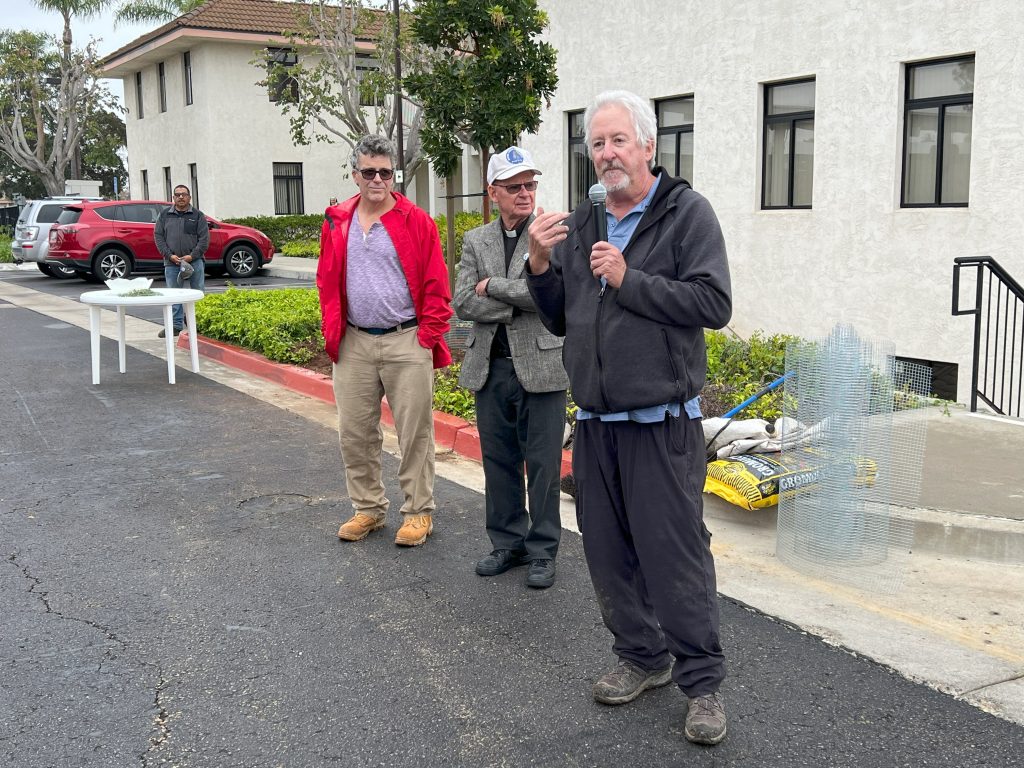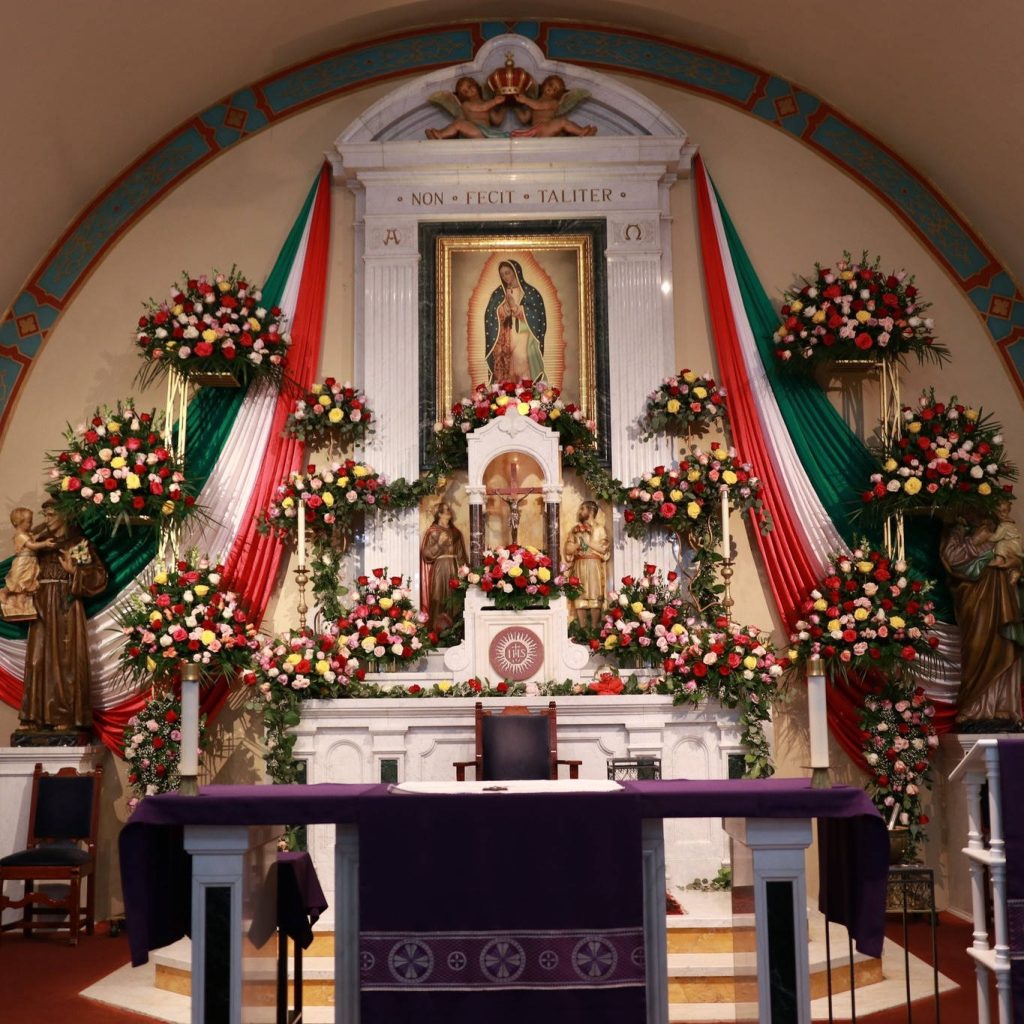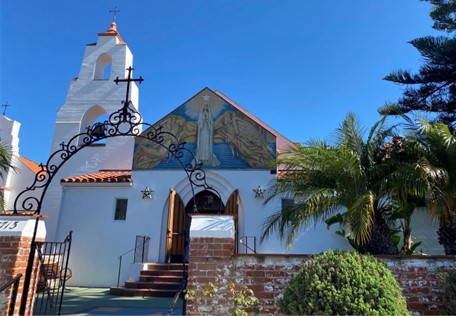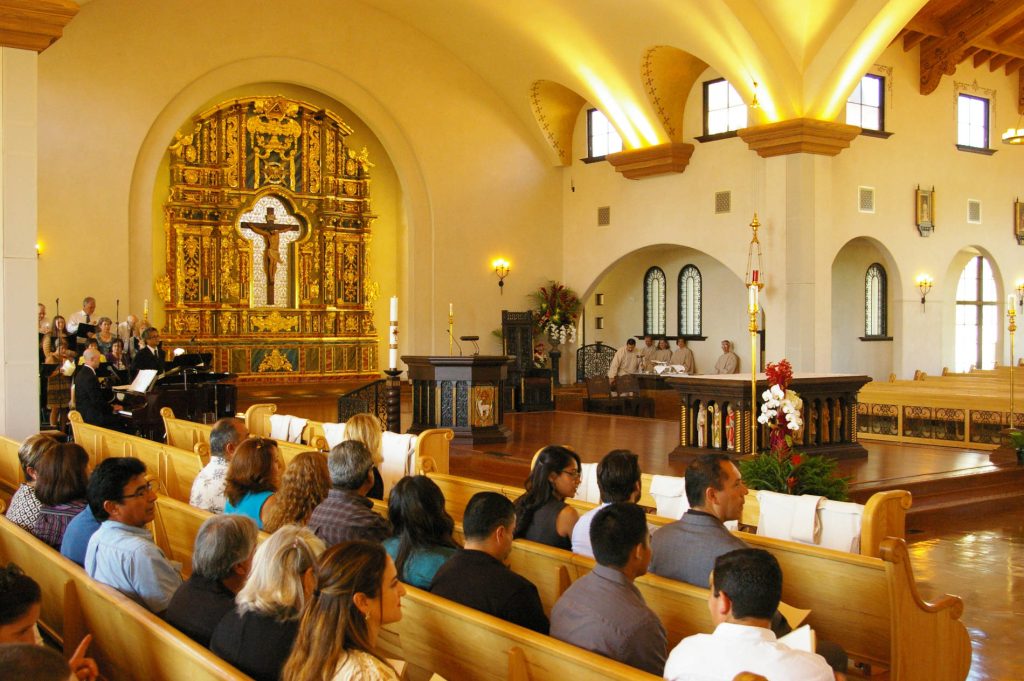SAN DIEGO — Deacon Mike Daniels has served at St. Brigid Parish since his ordination to the permanent diaconate in 2007.
A longtime supporter of Catholic education, the 74-year-old is a member of the board of directors of Cristo Rey San Diego High School and recently served as its interim president. From 2002 to 2020, he served on the board of directors and in various volunteer positions for Nativity Prep Academy.
Deacon Daniels is also one of the lead organizers of the Million Meal Event (sdcatholic.org/event/millionmeals), a service project launched last year by the diocese’s deacons. This year, participants aim to pack 1.5 million meals over two days, June 10 and 11, at Cathedral Catholic High School.
Question: What influence did the Catholic faith have during your formative years?
Answer: Both of my parents were very committed Catholics. My brothers and I went to Catholic school, where we were immersed in the Catholic faith. My mother would embrace whatever liturgical season it was and find a way to bring it into our home. My brothers and I practiced our faith into our 70s.
What is your professional background?
After earning a bachelor’s degree in business from Seattle University and a Master of Business Administration from the University of Southern California, I worked for the department store chain May Company. Then, I joined our family’s art supply business, H.G. Daniels Company, where I worked from 1975 until I sold the business in 1998.
Why did you sell the business?
I was diagnosed with lymphoma, and my doctor recommended that I sell the business. My doctor was very positive, but my impression was that my chances of surviving were 50-50. It was a pretty rugged time in my life, with chemo, and radiation, and all of that.
How did your faith sustain you as you battled cancer?
I really don’t know how people survive these things without faith. Your faith goes from being cultural to being real when you’re in a crisis situation, and that’s what happened for me. Knowing what I know now, if I had to choose between having the cancer and not having the cancer, I’d choose to have it, because the faith formation that I got through it was life-changing.
How did your call to the diaconate come about?
After recovering from my illness, I had no desire to go back to work to make more money. I had a desire to serve, probably out of thanksgiving for still being alive. Something was formed in me when I was sick that led me to the diaconate. The call was something that just wouldn’t go away, but it took five years before I entered formation, which then took another five years to complete.
What attracted you to the notion of becoming a deacon?
When I felt the call, it was during a time — like the present — when the Church was being challenged in the legal world over clergy sex abuse. Rather than running away from that and rejecting the Church, I went the other way. I felt that, if we were going to fix this problem, good Catholics needed to step up. I entered the diaconate with the hope that I could be a positive force for the Church.
What have you found most rewarding about diaconal ministry?
The word “deacon” means “servant,” and I enjoy being a servant to the Church. But I think the most impactful thing has been how my prayer life has deepened.
Prior to the diaconate, my prayer life was active, but there was no regimen to it. Once you become a deacon, you’re part of the Catholic clergy and are required to pray the Liturgy of the Hours. Since ordination, my wife and I have prayed it together daily. I wish more people were trained to do the Liturgy of the Hours, because I think it’s a very rich experience. I went from a person who prayed sporadically to one who spends several hours a day in prayer with his wife.
What recommendations do you have about how to discern one’s vocation?
For me, the call to the diaconate came out of prayer and then intensified through prayer. If you feel some kind of a call, the first place to go is to your knees, because you really need God to help you discern what that call is. If you think you’re called to a religious vocation, but you’re not praying about it, it’s just not going to happen.









